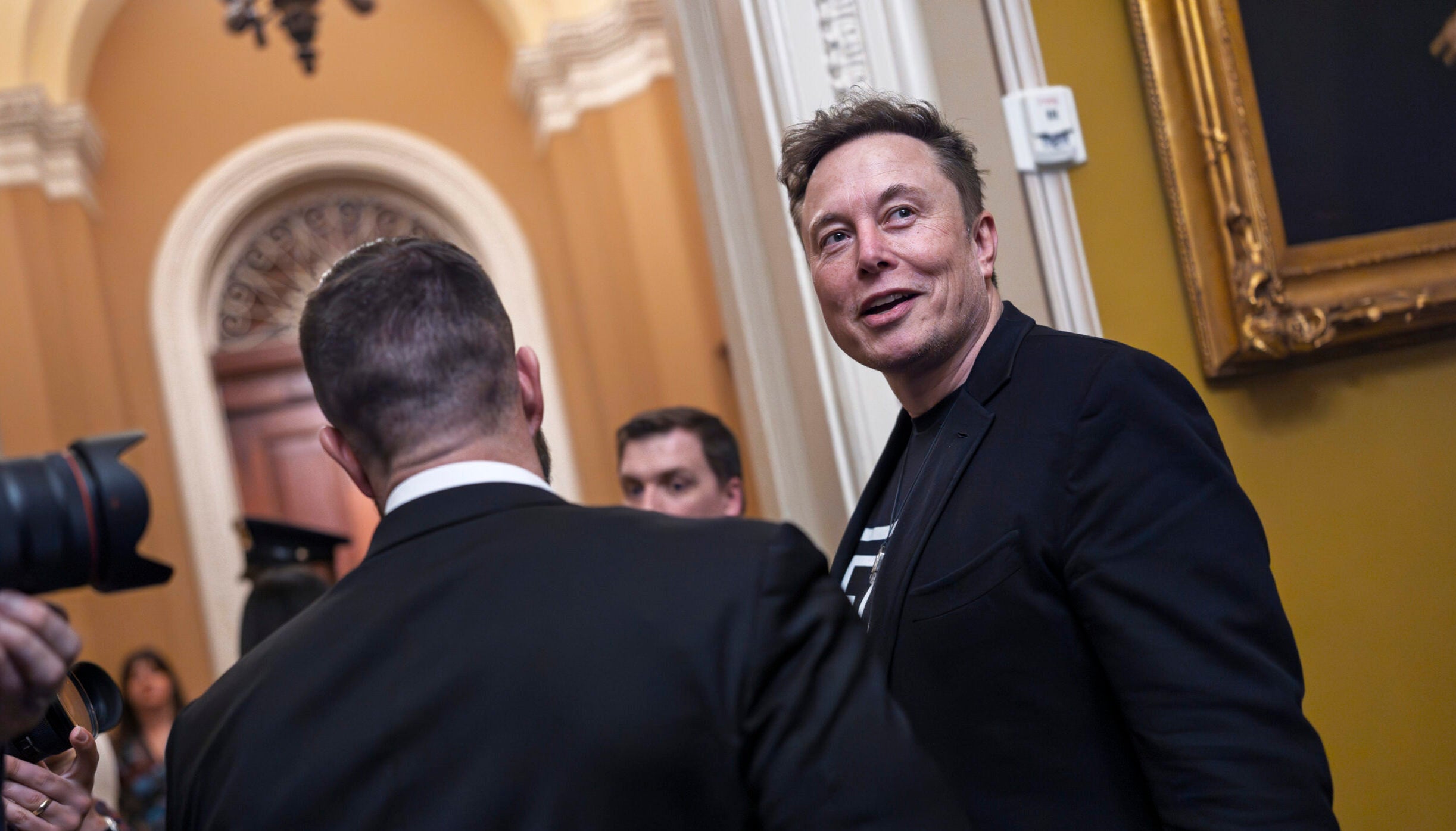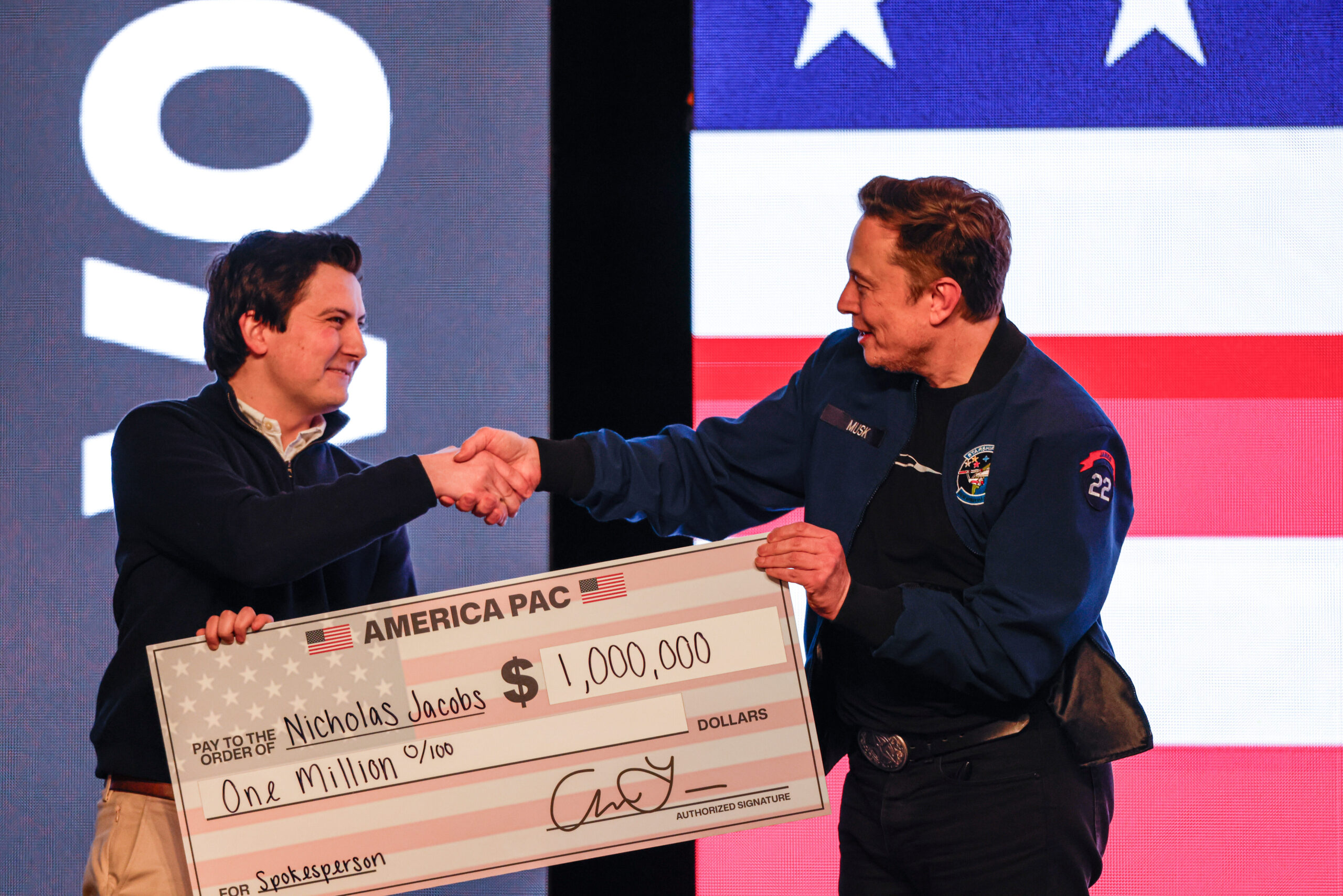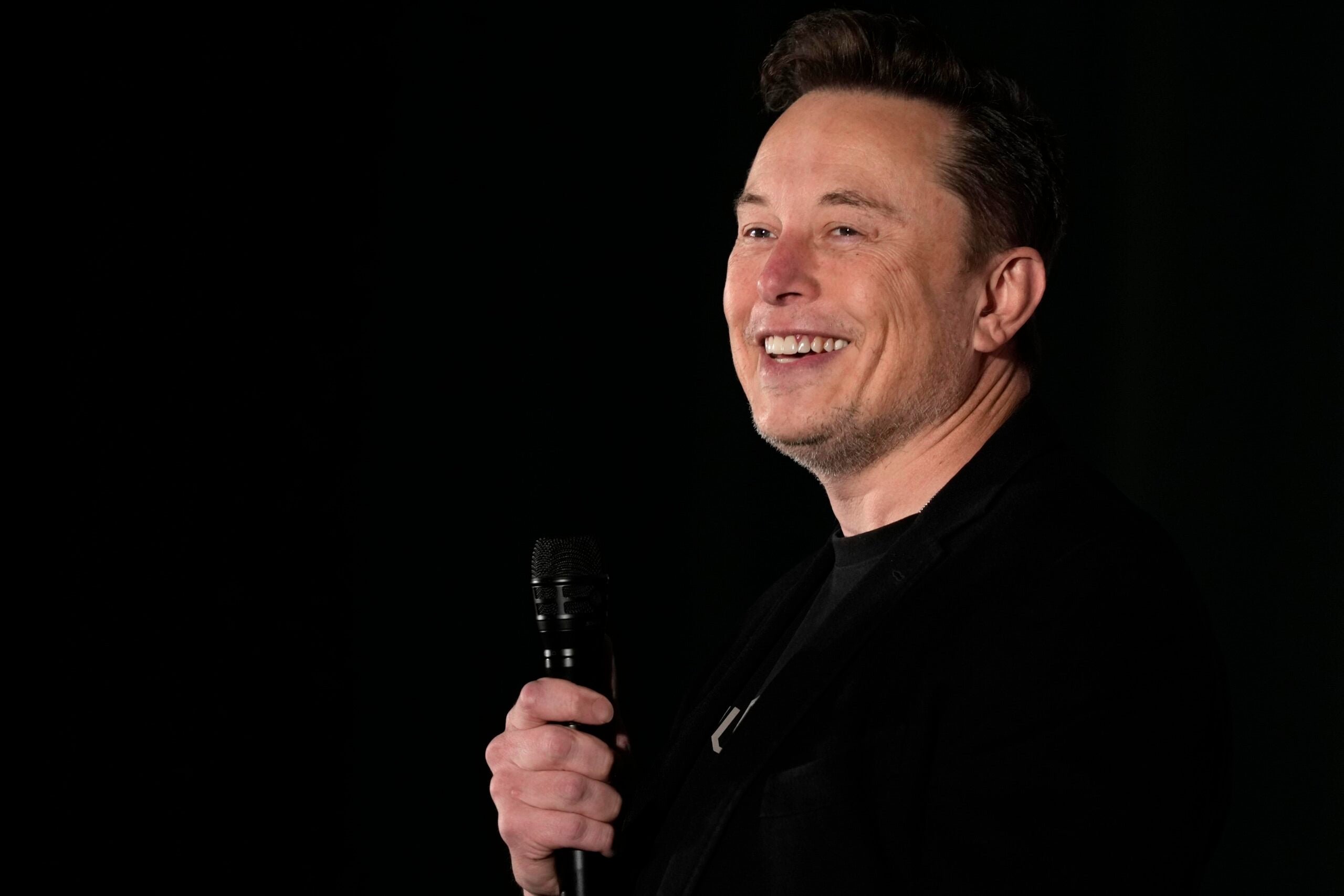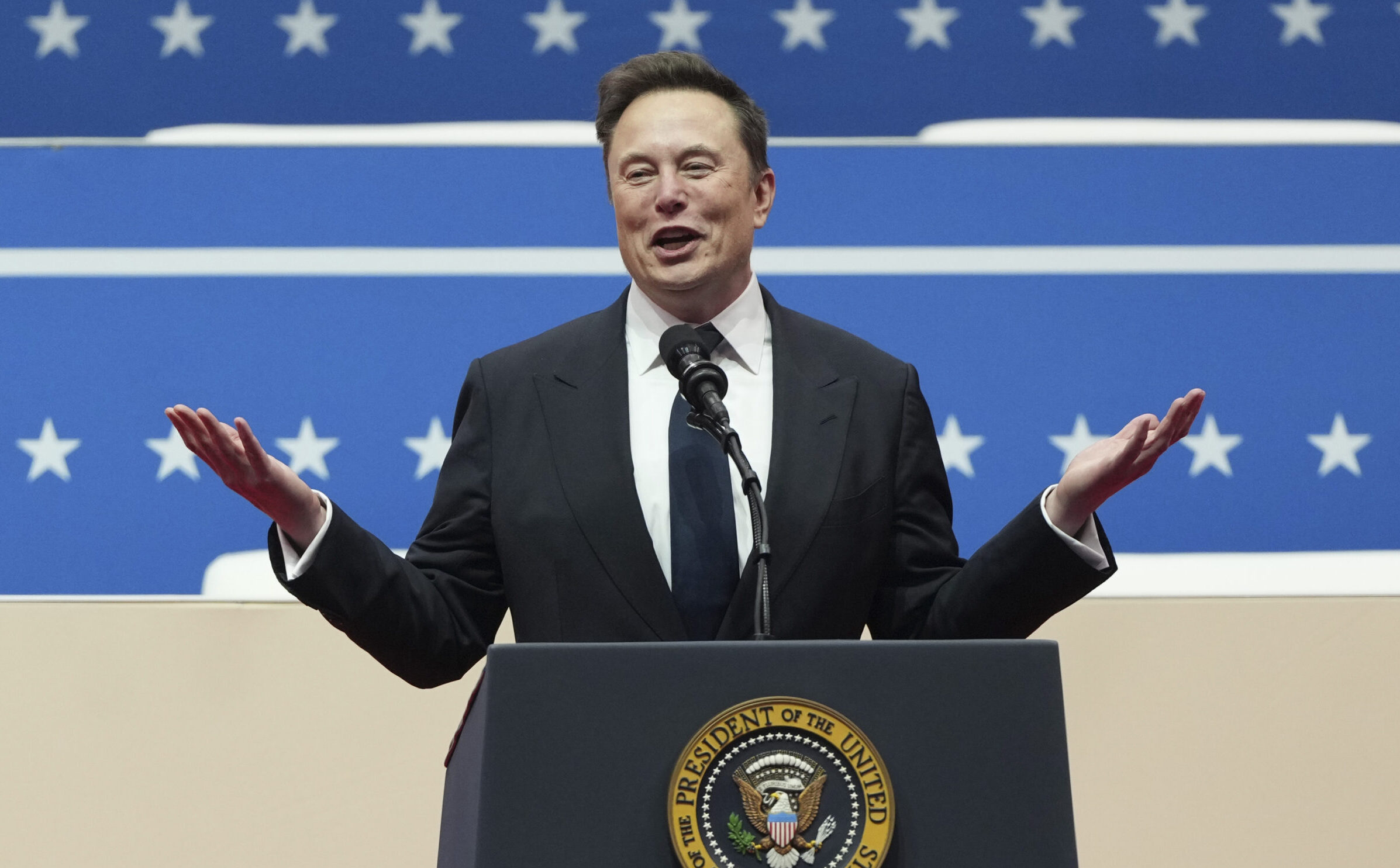Billionaire Elon Musk says he’ll visit Wisconsin Sunday to personally give $1 million each to two people ahead of the state’s pivotal Supreme Court election — despite a state law that explicitly bans giving people anything of value in exchange for voting.
The announcement prompted Democratic Wisconsin Attorney General Josh Kaul to file a lawsuit seeking a court order to block the event, calling it an “illegal event” and a “blatant attempt” to violate Wisconsin’s ban on election bribery.
Musk announced the giveaway on his social media platform, X. After it was scrutinized as a possible violation of Wisconsin’s bribery statute, he deleted the initial post and reworded a new one.
Musk said in his original post he would “give a talk in Wisconsin.”
News with a little more humanity
WPR’s “Wisconsin Today” newsletter keeps you connected to the state you love without feeling overwhelmed. No paywall. No agenda. No corporate filter.
“Entrance is limited to those who have voted in the Supreme Court election,” he wrote. “I will also personally hand over two checks for a million dollars each in appreciation for you taking the time to vote. This is super important.”
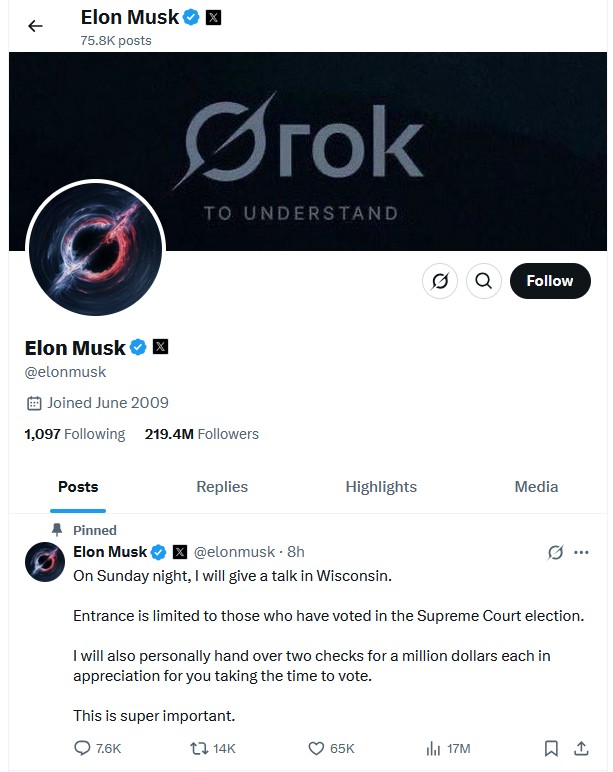
The initial post was published late Thursday and remained online for most of Friday morning before it was deleted. Just after noon, Musk posted an update on X and said while his Sunday night visit is still on, the million-dollar payments are no longer reserved only for people who have voted.
“To clarify a previous post, entrance is limited to those who have signed the petition in opposition to activist judges,” Musk said. “I will also hand over checks for a million dollars to 2 people to be spokesmen for the petition.”
The event is sponsored by Musk’s America PAC, one of two political action committees with ties to him.
By Friday afternoon, Kaul had filed a lawsuit seeking a court order blocking Musk’s planned giveaway. The complaint asked the court for “immediate, temporary and permanent injunctive relief to prevent Musk and America PAC’s egregious attempt to buy votes in a Wisconsin election.”
Musk and the groups connected to him have already given more than $20 million to support the campaign of conservative Judge Brad Schimel in his race against liberal Judge Susan Crawford. While Crawford has her own big donors and her campaign has outraised Schimel’s, the overall amount spent by Musk and his affiliated PACs has made him far and away the biggest financial player in the race.
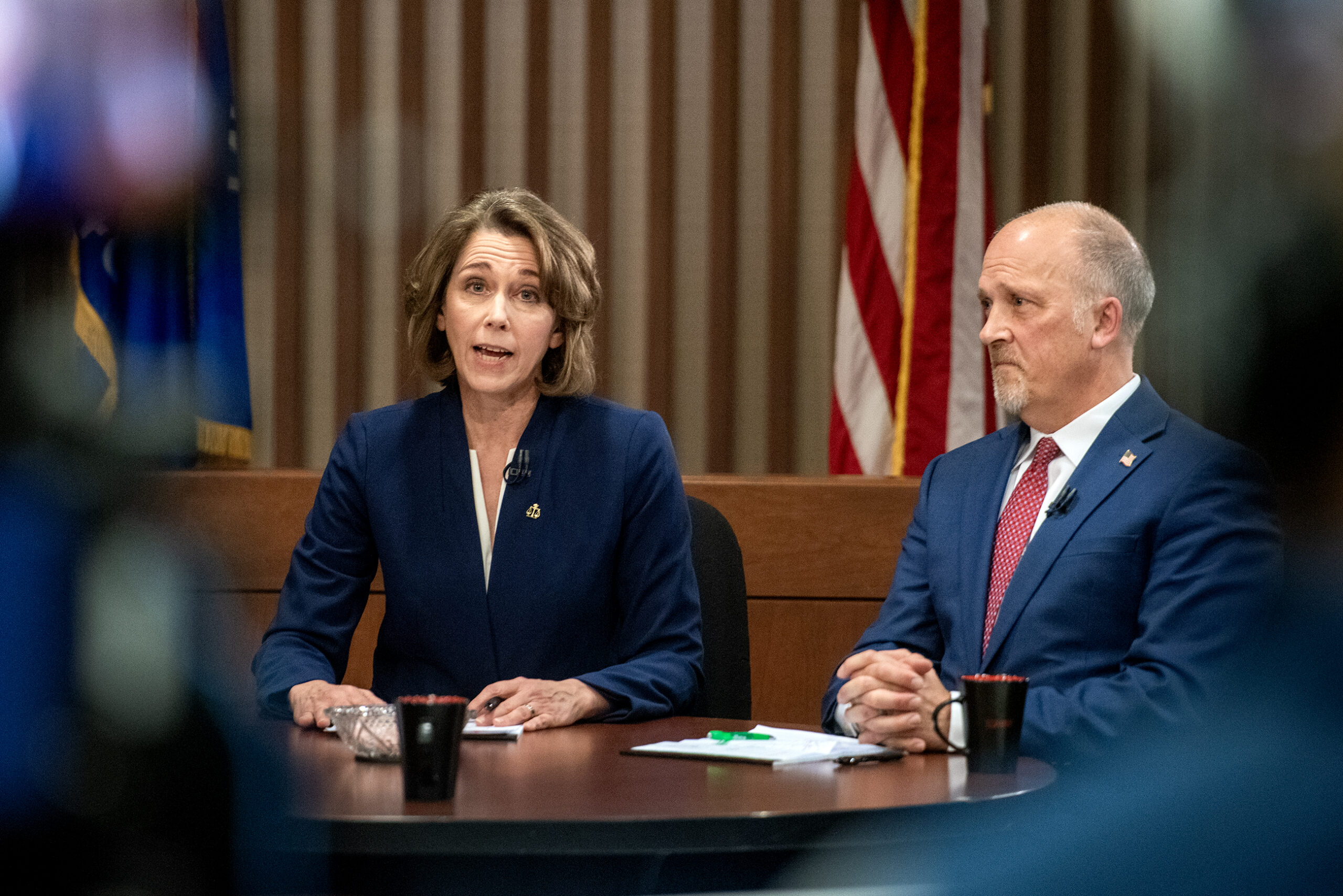
The money Musk is paying voters stems from a giveaway that started last week, with Musk’s announcement that he would give people $100 if they sign a petition opposing “activist judges.” At the time, there was no mention of his plan to give out seven-figure awards.
On Thursday, Musk announced that “Scott A. From Green Bay” would receive the first $1 million award for signing the petition. Musk used the same tactic last year to drive voter registration in swing states ahead of President Donald Trump’s reelection. An Eau Claire man reportedly received a $1 million payment in October.
But Musk’s Thursday night announcement that he would hand out two $1 million payments “in appreciation” for people who had already voted would have been a new tactic, one that could be illegal in Wisconsin. A state law that bans election bribery specifically prohibits anyone from giving “anything of value” to vote.
In a social media post Friday morning, Barry Burden, director of the Elections Research Center at the University of Wisconsin-Madison, said Musk appears to be crossing a line.
“Earlier payments were for registering, but this is for voting,” Burden said. “A clear violation of the state’s election bribery law.”
Crawford campaign spokesperson Derrick Honeyman issued a statement that didn’t address the direct payments but blasted Musk’s visit as an attempt to distract from Schimel’s record.
“Wisconsinites don’t want a billionaire like Musk telling them who to vote for, and on Tuesday, voters should reject Musk’s lackey Brad Schimel,” Honeyman said.
Democratic Party of Wisconsin Chair Ben Wikler was more explicit. In a statement, he said, “Elon Musk has committed a blatant felony.”
“Musk’s illegal election bribery scheme to put Brad Schimel on the Supreme Court is a chainsaw attack on democracy and the rule of law in Wisconsin and our nation,” Wikler said.
Perhaps no figure has been more central to Wisconsin’s Supreme Court race than Musk, whose prominent role leading President Donald Trump’s Department of Government Efficiency, or DOGE, has made him a lightning rod in the early days of the Trump presidency. Musk has overseen the firing of tens of thousands of federal employees and the abrupt defunding of government programs, not to mention the effective shuttering of an entire government agency.
Musk’s outspoken approach has made him a hero to many Trump supporters and a villain to voters on the left. Wisconsin Democrats have tried to seize the political moment, launching a “People v. Musk” campaign that ties Musk to Schimel. Attacks from Crawford’s campaign and others have increasingly focused on the world’s richest man.
At the same time, Schimel has welcomed Musk’s help with open arms, joining him for an online forum over the weekend where Musk suggested the Wisconsin Supreme Court race could determine the direction of the country at large. For Schimel, it’s part of an ongoing strategy to mobilize Trump voters, who turned out in droves last year but typically stay home in lower-turnout elections like the race for the court.
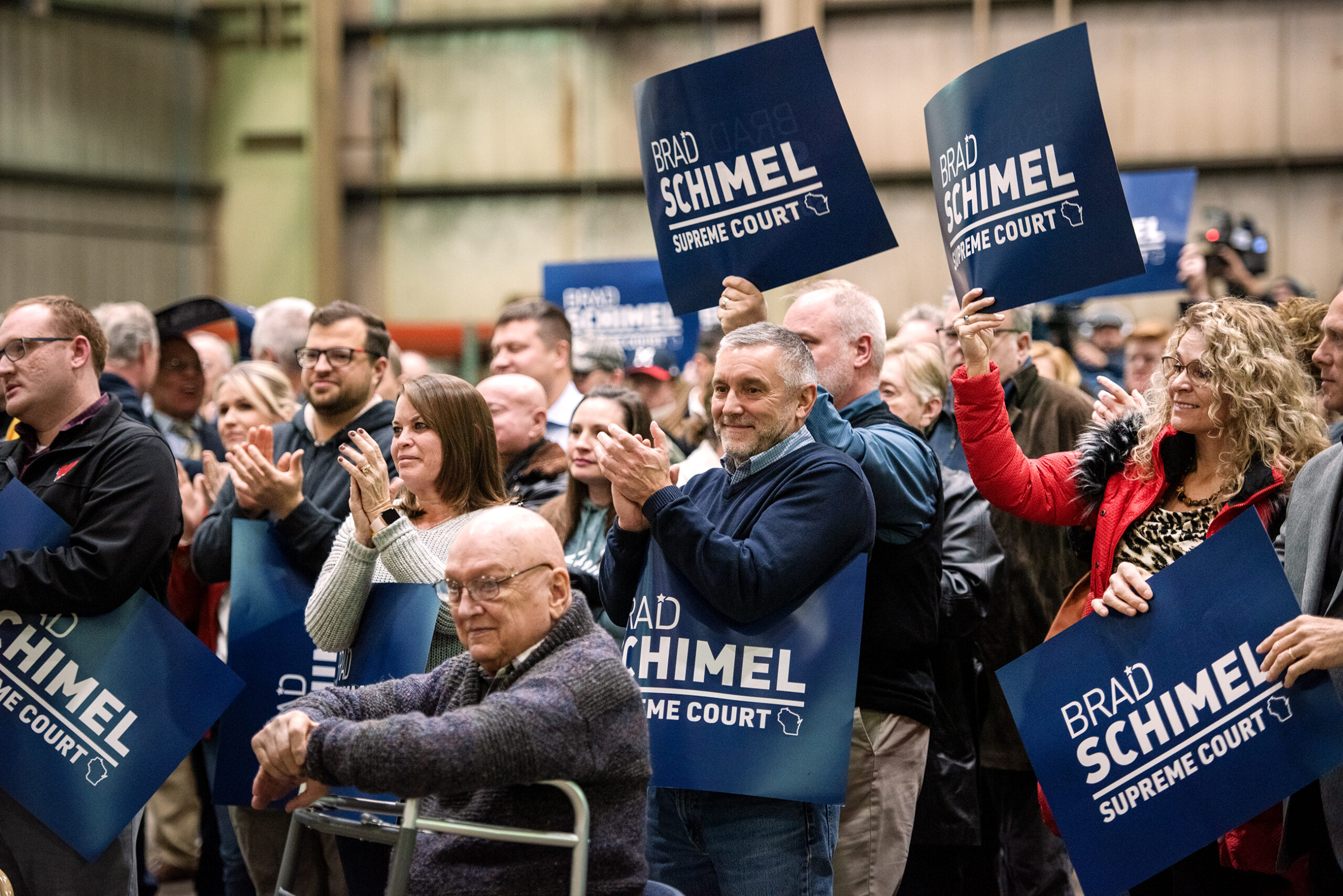
When Schimel was asked Thursday about Musk’s initial $1 million payment, he said he didn’t think it would affect his race.
“I also am against activist judges,” Schimel said Thursday. “So, I thought about maybe putting my name on that, but I thought it might not look good.”
Early voting, once primarily an emphasis for Democrats, has been a priority for both parties this election. As of Friday morning, about 544,000 residents had returned absentee ballots, more than half of which were cast in-person.
Kaul’s lawsuit was initially filed in Dane County Circuit Court, where it was assigned to Crawford, who is a judge in the county. Her campaign issued a statement saying that cases in the county are randomly assigned, and Crawford would recuse herself from hearing the complaint.
According the court system’s website, the case was reassigned to Columbia County Judge Andrew Voigt.
Wisconsin Public Radio, © Copyright 2025, Board of Regents of the University of Wisconsin System and Wisconsin Educational Communications Board.

